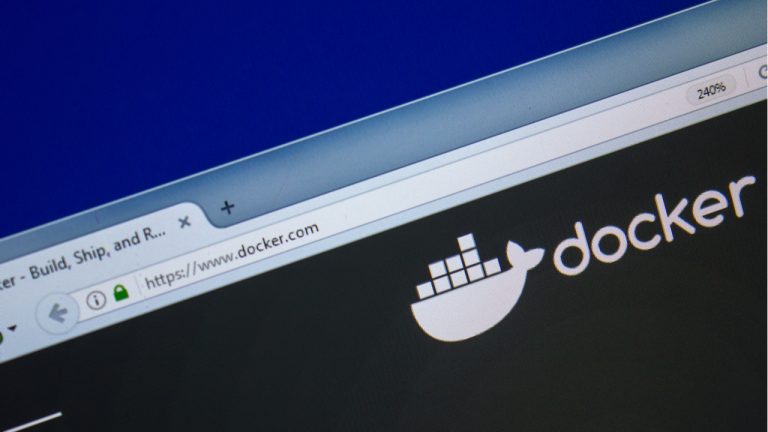
Microsoft will expand its AI and cloud presence in India, including training 10 million individuals by 2030 and supporting AI startups.
American tech giant Microsoft plans to invest $3 billion to expand its cloud computing and artificial intelligence capabilities in India.
The investment includes providing artificial intelligence training to 500,000 individuals and establishing new data centers.
On Jan. 8, Microsoft CEO Satya Nadella shared the company’s plan to invest $3 billion in India over two years to build AI and cloud capabilities, calling it “the single largest expansion we have ever done in India.” The announcement was made at the Microsoft AI Tour in Bengaluru.

Microsoft intends to use services like Azure OpenAI Service and Copilot for Microsoft 365 to help drive AI innovation for the Coca‑Cola Company and its network of independent bottlers worldwide.
The Coca-Cola Company has signed a five-year deal with Microsoft to develop and integrate artificial intelligence (AI) use cases across various business functions.
Coca‑Cola committed $1.1 billion to the Microsoft Cloud for its generative AI and cloud capabilities. According to the announcement made on April 23, the duo will jointly experiment with Azure OpenAI Service and other technologies “to develop innovative generative AI use cases across various business functions.”
In addition, the companies will experiment with the Microsoft Copilot Microsoft 365 AI assistant to test its efficacy in improving workplace productivity.

Photonic’s founder and Chief Quantum Officer says the company can bring a quantum computer to market within the next five years.
Canadian quantum computing firm Photonic has emerged from stealth to raise $100 million for its all-silicon quantum computing platform. Among the investors is new partner Microsoft, who will co-develop quantum networking solutions with the startup.
The investment and partnership come as numerous experts in the industry laud Photonic’s novel approach to quantum computing as a “breakthrough” for the field.
We're joining forces with @TeamPhotonic to enable future quantum networking over long distances—and to integrate Photonic's scalable quantum computing offering into Azure Quantum Elements. Learn more: https://t.co/S8nTpNuEIY #AzureQuantum
— Azure Quantum (@MSFTQuantum) November 9, 2023
Photonic’s technique involves building quantum computers using silicon spin qubits with a spin-photon interface — in other words, a computer that uses qubits made of light to perform quantum computations on silicon hardware.
Related: IBM, Microsoft, others form post-quantum cryptography coalition
In quantum computing, a qubit is analogous with a binary computer’s bits. However, whereas a binary, or classical, computer can only perform calculations using ones and zeros, a qubit can tap into exotic features of quantum physics called “superposition” and “entanglement.” These quantum states allow qubits to compute in a way that would resemble a binary bit being able to use ones, zeros, ones and zeros, neither ones nor zeros, and other even less intuitive combinations.
A spin qubit takes things a step further by adding electron spin. And, by developing a qubit with a photonic spin interface in an all-silicon hardware solution, Photonic believes it has found the missing piece of the puzzle when it comes to quantum computing.
Stephanie Simmons, founder and Chief Quantum Officer of Photonic, says the company expects to bring a fault-tolerant, fully-functional, quantum networking system to market as early as within the next five years.
Per Simmons, the partnership with Microsoft will help to facilitate that timeline:
“We’re incredibly excited to be partnering with Microsoft to bring forth these new quantum capabilities. Their extensive global infrastructure, proven platforms, and the remarkable scale of the Azure cloud make them the ideal partner to unleash the transformative potential of quantum computing and accelerate innovation across the quantum computing ecosystem.”

Solana (SOL) rival Aptos (APT) is reportedly partnering with tech giant Microsoft on a new push into artificial intelligence (AI) and web3 projects. According to a new TechCrunch report, Aptos Labs will integrate its blockchain technology with Microsoft’s Azure OpenAI Service to quicken web3 adoption. Says Mo Shaikh, co-founder of Aptos Labs, “The primary focus […]
The post Solana Rival Aptos (APT) Partners With Microsoft To Work on Aritificial Intelligence and Web3: Report appeared first on The Daily Hodl.

Through the collaboration, Axelar will be the first cross-chain protocol to join Microsoft’s Azure marketplace.
On July 11, cross-chain protocol Axelar and tech giant Microsoft announced a partnership to bridge public and private blockchains. The collaboration will see Axelar joining Microsoft’s Azure marketplace, becoming the first cross-chain protocol listed on the developer’s online store.
Galen Moore, Axelar’s spokesperson, told Cointelegraph that the initiative would enable Axelar to reach tens of thousands of companies that use Azure, Microsoft’s cloud service. “This has tremendous potential for products that integrate established internet technology with public blockchains in ways that are meaningful for users,” Moore stated.
In the marketplace, developers will have access to tools via the AxelarJS software development kit (SDK), as well as Axelar’s general message passing, which helps developers integrate functionality independently of blockchains and databases.
The companies will also explore the integration of public and private blockchains to support artificial intelligence (AI) applications. Speaking on the nature of these solutions, Axelar co-founder, Sergey Gorbunov, explained that trust in AI needs to come from multiple layers:
“Are the models trained on the data that they’re supposed to be on? Did any private data leak into the models? Are the queries sent to the AI returning accurate results? Can we verify the origins of the data? Without answers to these questions, it’s hard to integrate AI to be a “member” of our societies.“
According to Gorbunov, combining private and public blockchains is the answer. “Blockchains can help establish roots of trust, make sure the data is not tampered with, and keep it hidden within specified jurisdictions,” he said, adding that “connections to public blockchains can be used to prove and establish trust across all consumers, no matter where they query the data from.“
Over 25,000 applications and services are available in Azure’s marketplace for developers and businesses, the company’s website states. A search on the platform reveals at least 200 solutions powered by blockchain technology.
Axelar currently supports 43 blockchains. Last year, it raised $35 million in Series B funding, lifting its market value above $1 billion. Some of the participants in the round include Dragonfly Capital, Polychain Capital and North Island Ventures.
Collect this article as an NFT to preserve this moment in history and show your support for independent journalism in the crypto space.
Magazine: ‘Moral responsibility’ — Can blockchain really improve trust in AI?

More than 900,000 Mercedes vehicles in the United States will have access to the new ChatGPT-enabled beta feature, which will be trialed for about three months.
Luxury car manufacturer Mercedes-Benz is integrating artificial intelligence into more than 900,000 vehicles as part of a new trial of a ChatGPT-powered voice assistant system.
The company announced on June 16 that the optional beta feature is now accessible to the owner of any vehicle equipped with the Mercedes-Benz User Experience (MBUX) interface, which currently accounts for more than 900,000 Mercedes-Benz cars in the United States.
Mercedes drivers can sign up for the new AI-powered voice assistant by saying “Hey Mercedes, I want to join the beta program,” while sitting in their car. Alternatively, users can join by signing up through the car manufacturers’ "me” application.
(1/2) #MercedesBenz is adding ChatGPT to the #MBUX Voice Assistant “Hey Mercedes” as part of a beta program in the United States. This way, voice control in MBUX enabled vehicles will become even more intuitive.
— Mercedes-Benz Press (@MB_Press) June 15, 2023
More: https://t.co/DF7KWOabFm pic.twitter.com/DHzmexIZym
The German-based manufacturer explained that ChatGPT would “complement” its existing voice control feature by expanding upon its existing capabilities:
“While most voice assistants are limited to predefined tasks and responses, ChatGPT leverages a large language model to greatly improve natural language understanding and expand the topics to which it can respond.”
The ChatGPT integration will allow users to ask the Voice Assistant questions that are either related or unrelated to the driving experience, something the chatbot can reportedly provide “comprehensive answers” to.
Any voice command data that’s collected by the voice assistant will be stored in the Mercedes-Benz Intelligent Cloud system where it will be anonymized and analyzed, the firm said.
The future is now – with the INTELLIGENT PARK PILOT some variants of the #EQS are prepared for driverless, highly automated parking (SAE level 4). The only question that remains is, are you? #MercedesBenz #EaseofParking pic.twitter.com/s8HnKW3zwC
— Mercedes-Benz (@MercedesBenz) June 15, 2023
The beta programme is expected to last three months. Following that period, Mercedez said it will then reassess whether it plans to develop the ChatGPT-enabled voice control feature any further.
Related: Blockchain technology revolutionizes automotive industry with Armoring Products leading the way

While this marks the car company’s latest step into AI, Mercedes-Benz has been involved in blockchain-related projects for a number of years.
In January 2022, the car company partnered with several nonfungible token (NFT) artists to celebrate its G-Class series model. The manufacturer also began using Ocean Protocol’s blockchain to collect various user data in July 2020.
In March 2018, the firm also launched its own cryptocurrency to reward eco-friendly driving.
Magazine: AI Eye: ‘Biggest ever’ leap in AI, cool new tools, AIs are the real DAOs

Microsoft now requires users to obtain a written pre-approval from the firm in order to use Microsoft Azure for mining cryptocurrencies like Bitcoin.
Cloud computing giant Microsoft is taking measures to increase stability of its cloud services by forcing new restrictions for activities like cryptocurrency mining.
Microsoft has quietly banned crypto mining from its online services in order to better protect its customers and clouds, British technology news agency The Register reported on Dec. 15.
The company introduced the new restrictions as part of its universal license terms of Microsoft Online Services. Microsoft updated its acceptable use policy on Dec. 1 to clarify that “mining cryptocurrency is prohibited without prior Microsoft approval.”
In the “Acceptable Use Policy” section, Microsoft said that it now requires users to obtain a written pre-approval from the company in order to use any of Microsoft Online Services for crypto mining.
Microsoft reportedly said that its latest crypto mining restrictions aim to protect the online services from risks like cyber fraud, attacks and unauthorized access to customer resources, stating:
“We made this change to further protect our customers and mitigate the risk of disrupting or impairing services in the Microsoft Cloud.”
The firm also reportedly noted that it may consider permission to mine crypto for testing and research purposes for security detections.
Microsoft did not immediately respond to Cointelegraph’s request for comment.
Microsoft Online Services is Microsoft’s hosted-software offering and is a component of the firm’s software as a service strategy. These services include Microsoft's Azure cloud computing network, which is known to offer cryptocurrency mining on certain subscription types. As previously reported, Microsoft also experimented with blockchain services on Azure, but quietly terminated its Azure Blockchain Service project in September last year.
According to some reports, Microsoft cloud computing systems have suffered notable capacity shortages in recent years due to continuing supply-chain limitations. More than half a dozen Azure data centers are reportedly expected to remain limited until early 2023.
By adopting the new restrictions, Microsoft joins many other cloud computing providers, including Google, which also prohibits customers from engaging in cryptocurrency mining without Google's prior written approval. Other platforms like Oracle have banned cloud mining completely, while Digital Ocean also requires written permission.
Related: Nasdaq warns Bitcoin mining firm Bitfarms about share price deficiency
Cloud mining is an alternative method of investing in crypto allowing users to mine digital coins without using mining equipment or hardware, relying on a remote datacenter with shared processing power. According to the blockchain research group Blockchain Council, cloud mining is one of the most profitable ways to mine crypto because it doesn’t require customers to pay for the equipment and related costs.
The news comes amid the cryptocurrency mining industry going through a major crisis linked to the current cryptocurrency winter, with some miners being on the edge of bankruptcy due to insufficient funds.
 Docker, a popular cloud computing integration solution, is making changes to its free-tier service due to cryptocurrency mining abuse. The service discontinued its “autobuild” feature due to misuse by bad actors, using it to mine cryptocurrencies in their servers. This is a modus operandi that is now affecting several cloud continuous integration platforms, including GitHub, […]
Docker, a popular cloud computing integration solution, is making changes to its free-tier service due to cryptocurrency mining abuse. The service discontinued its “autobuild” feature due to misuse by bad actors, using it to mine cryptocurrencies in their servers. This is a modus operandi that is now affecting several cloud continuous integration platforms, including GitHub, […]
Microsoft is closing its Azure Blockchain Service, giving existing customers just four months to transition to new service providers.
Microsoft is turning off its corporate Azure Blockchain Service on September 10 and will not accept any new deployments effective immediately, with no official explanation provided.
Large corporate customers who use Azure Blockchain include J.P. Morgan, GE Aviation, Singapore Airlines, Starbucks, and Xbox according to its website.
The announcement was made in a low key post on the Microsoft documentation site on Monday, informing all current customers to migrate to alternate services. ConsenSys Quorum Blockchain Service was the only suggestion and ConsenSys founder and CEO Joseph Lubin welcomed the Azure refugees:
“Expanding our relationship with Microsoft helps organizations take advantage of ConsenSys Quorum and Quorum customer support to offer users an enterprise-grade managed blockchain service that can be effortlessly set-up and deployed.”
The imminent closure was given more public attention via a Twitter post on May 12 by Azure architect Tom Kerhove.
Looks like Azure Blockchain Service is no longer a thinghttps://t.co/HX0aFYkU3I
— Tom Kerkhove ☁️ (@TomKerkhove) May 12, 2021
Kudos to @TechMike2kX for finding out.
Microsoft’s Azure Blockchain is six years old and developed from a sandbox style service in 2015 on Ethereum in partnership with ConsenSys, before it was offered as a fully managed Blockchain-as-a-Service, or BaaS, preview in late 2019. Microsoft’s original goal for Azure was to create a certified blockchain marketplace giving customers the “ability to discover blockchain technologies and value added services.”
Despite stating no new deployments will be accepted on the service, Microsoft are yet to remove the Azure page offering new users to sign up for free.
Microsoft has been sending mixed messages around its stance towards cryptocurrency and blockchain, with president Brad Smith claiming earlier this year that the multinational was not even the least bit interested in dabbling in Bitcoin. However, in late March, the company released an online poll asking customers how likely they would be to use Bitcoin for purchases in the Xbox Games Store.
This is one of the first major enterprise blockchain solutions to close its doors, however it is not likely to spell the end for commercial blockchain adoption with IBM, ConsenSys, Hyperledger, Amazon, and Huawei all offering alternate enterprise-ready solutions.